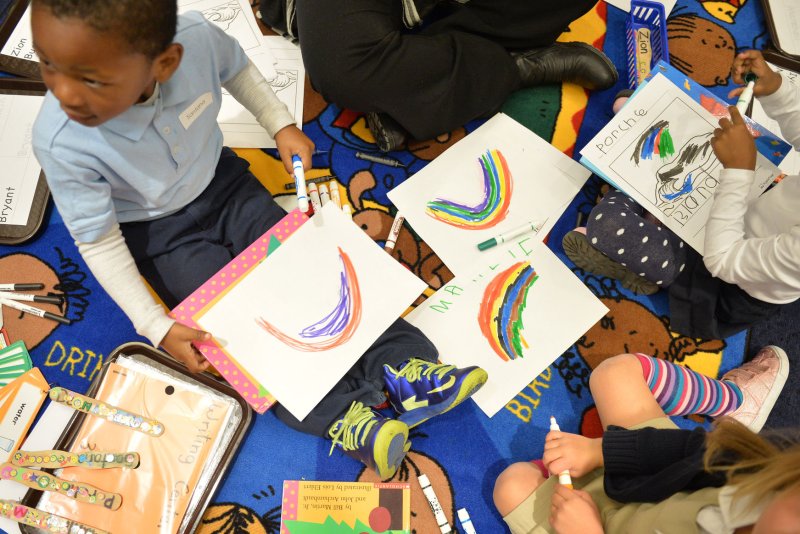Brain areas associated with emotions and social functions showed more activity after autistic children took oxytocin. The study could also mean the effects of autism may be reversible, and help improve the social interactions skills of autistic children. (File/UPI/Kevin Dietsch) |
License Photo
Dec. 3 (UPI) -- Oxytocin given to autistic children has been shown to stimulate regions of the brain that can improve social behavior.
A study, published Monday in the Proceedings of the National Academy of Sciences, found that oxytocin given as an inhalant to autistic children increased activity in parts of the brain dealing with social interaction.
While the effect of the hormone has been long debated, the study, conducted by the Yale Child Study Center, shows that not only can oxytocin stimulate parts of the brain, but that in children with autism, damage to these brain regions is not irrevocable.
Seventeen children with autism were given two nasal sprays -- one with the hormone and the other a placebo. After taking each inhalant, the children's brain activity was scanned as they were shown "social" pictures of human faces or "non-social" pictures of cars.
Brain areas involved in social functions like empathy and reward -- less active in children with autism -- showed more activity after taking oxytocin than after placebo.
Professor Kevin Pelphrey, a researcher on the study, said that all seventeen children showed a response, though "the response was variable."
"There's still lots of questions about oxytocin, but this suggests it enhances social brain functions and decreases non-social functions -- helping kids to focus on socially relevant information," he said.
The study had another interesting result. Children whose saliva had higher oxytocin concentrations showed more activity in the amygdala, a part of the brain shown to play a key role in the processsing of emotions. This means that a simple saliva test could, in the future, help determine who might most benefit from oxytocin.
[Proceedings of the National Academy of Sciences]
[The New York Times]
[BBC]







